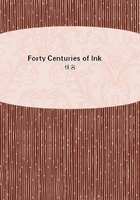
第72章
ESTIMATED VALUE OF SCIENTIFIC EVIDENCE AS HELD BYTHE COURT OF APPEALS--NOW BEYOND THE PURVIEW OFCRITICISM--VERDICTS IN THE TRIALS OF CAUSES AFFECTEDBY SUCH EVIDENCE--LENGTH OF TIME NECESSARY TO OVERCOME PREJUDICE AND IGNORANCE-WHERE OBJECTIONS TO SUCH EVIDENCE EMANATE-SOME OBSERVATIONS ABOUT SUCH EVIDENCE GENERALLY--WHEN PRECEDENT WAS MADE TO CHEMICALLY EXAMINE A COURT EXHIBIT BEFORE TRIAL--THE CONTROVERSY IN WHICH JUDGE RANSOM MADE THIS NEWDEPARTURE--CITATION OF THE CASE AND ITS OUTCOME--DECISION IN THE GORDON WILL CASE OBTAINED BY THE SCIENTIFIC EVIDENCE--COMPLETE STORY ABOUT IT--HISTORY OF THE DIMON WILL CASE AND HOW CHEMISTRY MADE IT POSSIBLE TO CONSIDER IT--OPINION OF JUDGE INGRAHAM--PEOPLE OF THE STATE OF NEW YORK V. CODY--THE ATTEMPT TO PROVEAN ALLEGED "GOULD" BIRTH CERTIFICATE GENUINE, FRUSTRATED BY CHEMICAL EVIDENCE--THE DEFENDANTCONVICTED--THE PEOPLE V. KELLAM--CHEMICAL EVIDENCE MAKES THE TRUTH KNOWN--THE HOLT WILL CASE AND THE EVIDENCE WHICH AFFECTED ITSRESULT--THE TIGHE WILL CASE--OPINION OF JUDGEFITZGERALD.
"The administration of justice profits by the progress of science, and its history shows it to have been almost the earliest in antagonism to popular delusion and superstition. The revelations of the microscope are constantly resorted to in protection of individual and public interests. . . .
If they are relied upon as agencies for accurate mathematical results in mensuration and astronomy, there is no reason why they should be deemed unreliable in matters of evidence. Wherever what they disclose can aid or elucidate the just determination of legal controversies there can be no well-founded objection to resorting to them." Frank v. Chemical Nat. Bank, 37 Superior Court (J. &S.) 34, affirmed in Court of Appeals, 84 N. Y. 209.
THIS decision by a final court of adjudicature, expresses in no uncertain terms the now generally estimated value of evidence which science may reveal.
The importance which that branch of it denominated "Chemico-legal ink" has attained and its utilization in many trials of causes both civil as well as criminal, places it beyond the purview of criticism or objection.
With the introduction of a new class of inks in the last two decades, its scope has been much broadened.
Innumerable verdicts by juries wherever the system prevails, all over the world, the opinions of learned judges, whether presiding during a jury trial or sitting alone, more or less affected by this character of evidence, presents fairly the trend of the views of the public mind respecting it.
Constant experiment and successful demonstrations, covering a period of over fifty years, was necessary to overcome prevailing prejudices and ignorance.
The conditions to-day, which happily obtain, are that the objection to the introduction of such evidence finds its source usually in the side seeking to obscure and hide the truth or facts, while the honest litigant or innocent individual hastens to advocate its employment.
Another feature worthy of consideration is that persons who possess intimate knowledge of ink chem. istry and who might otherwise successfully perpetrate fraud if opportunity presented itself, refrain from making the attempt because of that very knowledge, which is sufficient also to teach them of the possible exposure of their efforts. Again, they and others are aware of the reliance placed on chemico-legal evidence as an aid to the cause of justice by courts and juries and this is an added reason why they hesitate to take chances. These propositions being true, they establish another one, viz: that most of the attempted frauds at the present time in this connection, are by the ignorant and those whose conceit does not permit them to believe that any one knows more than themselves.
Chemico-legal ink evidence as before stated has been employed in the trials of causes for many years;but it was not until the year 1889 that a precedent was established for the chemical examination of a suspected document preceding any trial. The honor of this departure from the ordinary modes of procedure belongs to the Hon. Rastus S. Ransom, who was surrogate of the county of New York at the time.
The matter in controversy was an alleged will executed in triplicate by one Thomas J. Monroe. Charges were made that the three wills were spurious, as they were facsimiles of each other. It was for the main purpose of determining the methods of their make-up that Judge Ransom rendered the opinion and made the order for its chemical examination which is cited in full:
Estate of Thomas J. Monroe.--"This is an application by the special guardian and contestant in this proceeding, which is now pending before the assistant, for leave to photograph the various papers which have been filed as the will of the deceased, and to compel the filing of two parts of one of said wills, which was executed in triplicate;likewise that the last paper be subjected to chemical tests for the purpose of disclosing the nature of the composition of the ink and the process or processes to which it has been subjected.
"Upon the oral argument the surrogate decided the applications first stated in favor of the petitioner, reserving only the question of his power to direct or permit the chemical tests. The special guardian on the oral argument stated that he was unable, to find any authority for the application.
"Consultation of the various sources of authority upon the subject of expert testimony and the various tests for the purpose of establishing or disproving handwriting has not resulted in the discovery of any authority for granting the application.